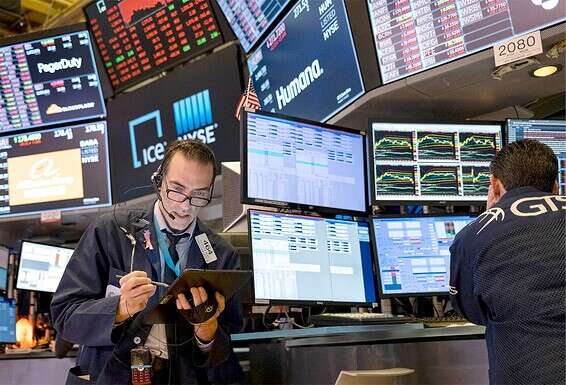The rise in morbidity in Europe is expected to lead to further restrictions on the economy, leading to gloom among investors • Tel Aviv indices fell to 2.8% • However, October was positive
The Tel Aviv Stock Exchange
Photography:
Gideon Markovich
The sharp declines in the US and Europe due to the increase in morbidity and the renewal of restrictions also reached the Tel Aviv Stock Exchange. The index that has been hit the hardest is the German DAX, due to the jump in morbidity in the country and the many restrictions that are expected in it.
Earlier in the afternoon, the stock exchange published the summary of October, which today is the last trading day on it.
Trading during the month was characterized by price increases in all the leading stock indices.
Rises of about 3% characterized most of the indices, led by the Tel Aviv 35 Index, compared with a more moderate rise of about 2% -1% recorded this month in the leading stock indices on the US stock exchanges, and an average decrease of about 4% recorded in leading stock exchanges in Europe.
Exchange rate rises characterized all industry indices, chief among them the Tel Aviv 5 Banks and Tel Aviv Insurance Plus indices, which rose by 10% -9%, among other things, due to the Bank of Israel's announcement of its intention to alleviate the credit crunch in the economy by lowering capital adequacy. The companies' commitment is about 0.5%.
The energy companies' stock index continued to grow and rose by about 9% this month.
The daily turnover in the stock market, including mutual funds, decreased and amounted to NIS 1.2 billion in October, 37% lower than the turnover in January-September.
Despite this, in the sum of January-October, shares traded at about NIS 1.9 billion a day - 44% higher than the average turnover last year.
The Treasury's fundraising in October in the bond market is expected to amount to NIS 13 billion, following an average fundraising of NIS 14 billion in each of the months of May-September 2020, and a fundraising of NIS 6 billion in each of the months of January-April 2020.
Raising NIS 160 billion
It should be noted that about 83% of the amount raised this month was made in shekel bond issues, and about 17% of the amount was raised in indexed bond issues.
The Treasury raised an additional NIS 6 billion in a private allotment of bonds to institutional investors abroad.
These are two series of two-year and four-year euro-linked bonds with an average interest rate of less than 0.02%.
Since the beginning of the year, the Treasury has raised NIS 51.8 billion abroad, of which NIS 41.4 billion has been raised since the peak of the crisis in March.
So far this year, the Ministry of Finance has raised a total of about NIS 160 billion.

